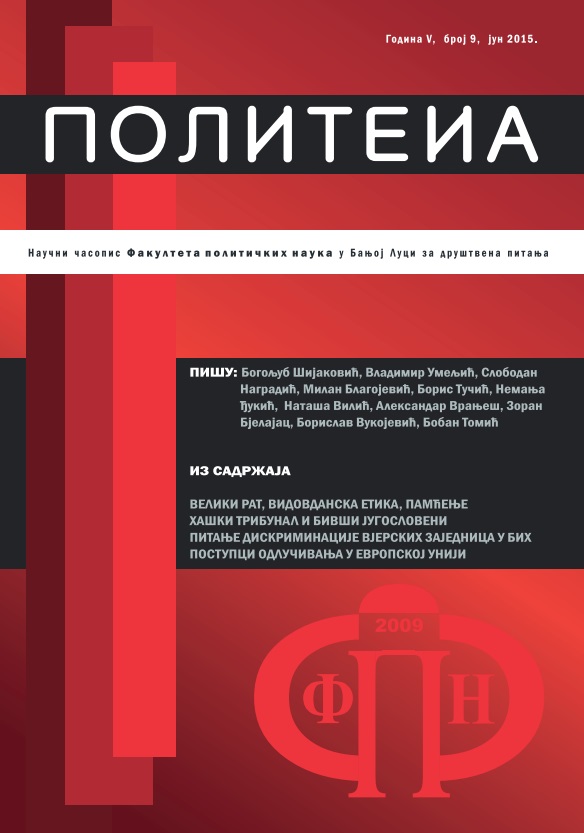DISTURBED PRECEDENTING OF THE LAW IN PRACTICE OF THE COURT OF BOSNIA AND HERZEGOVINA
DOI:
https://doi.org/10.7251/POL1509133BAbstract
The subject of this paper is one model developed in practice of the
Court of Bosnia and Herzegovina, and it is related to unconstitutional retroactive
implementation of incrimination crimes against humanity. Foundations
of this problem are laid in the decisions of Hague Tribunal, and
then in the decisions of the European Court for Human Rights. These decisions
are afterwards accepted without any critique in practice of the Court
of Bosnia and Herzegovina in criminal proceedings led regarding this incrimination.
This is the model of disturbed precedenting of the law. In the
paper this problem has been clarified by the author on one case from the
Court practice, which unfortunately is not the only example in reality. The
essence of this problem is in the Court sentencing verdicts reached against
individuals. Namely, assertions that widespread and systematic attack
against civilian population is carried out by the Army and Police of the Republic
of Srpska are expounded in these verdicts, but not confirmed by valid
proofs and arguments. This is the way for criminal sentencing of not only
individuals (natural persons) but the Republic of Srpska as well, without
enabling it to defend itself from such unfounded accusations. When the
Court of Bosnia and Herzegovina is trying to find arguments for such verdicts
in the decisions of the Hague Tribunal and in the decisions of the
European Court of Human Rights, it is defective since decisions of these international
institutions are defective as well. All this in final can cause serious
consequences against the Republic of Srpska, which (these consequences)
can be not only of criminal nature but of constitutional nature as
well.

